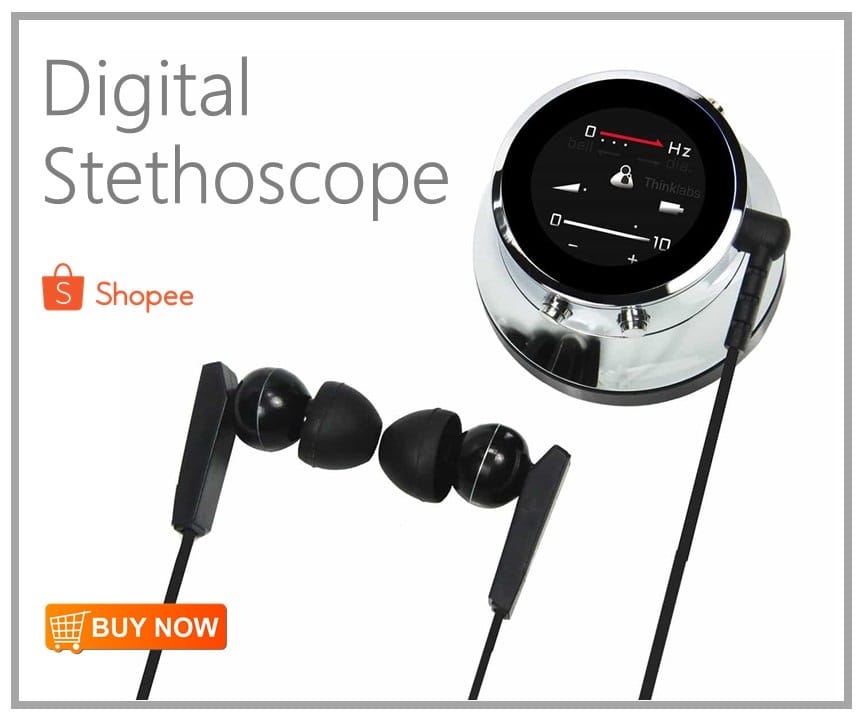Table of Contents
In this article, we’ll explore nine powerful ways to heal breakup depression and rise above the sadness that seems all-consuming. From embracing self-care rituals to harnessing the power of creative expression, each strategy offers a path toward emotional recovery and renewed hope. No matter how deep the sorrow feels today, these actionable steps will guide you toward brighter tomorrows—because every ending holds the potential for a new beginning. Let’s embark on this journey together and reclaim our joy!
Breakups can feel like a storm that sweeps away not just a relationship but also your sense of self and joy. The heartache may linger long after the last goodbye, leaving behind shadows of sadness that can be overwhelming. If you’ve ever found yourself in this emotional quagmire, you’re not alone—many navigate the turbulent waters of breakup depression. But what if we told you that healing is within reach? Imagine transforming pain into personal growth and rediscovering happiness on your terms.
Introduction: Understanding Ways to Heal Breakup Depression
Breakup depression is a profound emotional response to the end of a romantic relationship, often characterized by feelings of sadness, loneliness, and despair. Unlike typical grief that comes with loss, breakup depression can ignite a complex interplay of anxiety and self-doubt, leaving individuals questioning their self-worth and future happiness. The abrupt void left by a partner can lead to rumination, where one becomes trapped in cycles of what-ifs and unrelenting memories that cloud the mind.
This emotional turmoil can have far-reaching effects not just on mental health but also on physical well-being. Individuals may experience fatigue, disrupted sleep patterns, or diminished appetite—each compounded by the stress hormones released during feelings of sorrow. Furthermore, social isolation often accompanies this depression, as people withdraw from friends and family due to shame or sadness. Recognizing these symptoms is crucial; understanding their impact allows for targeted healing strategies that encourage rebuilding one’s sense of identity and purpose beyond the relationship.

1. Limit Contact with Ex-partner: Create distance to facilitate the healing process
To effectively heal breakup depression, one of the most crucial steps is to limit contact with your ex-partner. This might feel challenging, but cutting ties—at least temporarily—can create the necessary space for healing and self-discovery. Each interaction can reopen wounds that have yet to fully mend and keep you tethered to past emotions, hindering your journey toward recovery. Instead, consider this time apart an opportunity to reassess your identity outside of the relationship and nurture an environment that fosters personal growth.
Creating distance also allows you to process feelings without external influences clouding your judgment. It pushes you toward introspection; you’ll begin to explore new hobbies, socialize with friends, or even embark on solo adventures that shift your focus. As engaging as reminiscing about old times may be, it’s vital to remember the reasons behind the breakup. Embracing this solitude can lead to healing and clarity—you might discover aspects of yourself you’d overlooked while being part of a couple. Ultimately, limiting contact isn’t just a strategy; it’s a powerful affirmation that prioritizes your emotional well-being on the path toward healing from breakup depression.
2. Acknowledge Your Feelings: Accept emotions as part of healing
Acknowledging your feelings can be one of the most powerful steps in the journey to heal breakup depression. It’s essential to recognize that sadness, anger, and even relief are valid emotions that signal your mind and heart are processing an immense change. Instead of shoving these feelings away, embrace them as necessary companions on your healing path. Journaling can be a liberating way to explore these emotions without judgment—putting pen to paper allows you to articulate what might feel chaotic.
Moreover, emotional acceptance opens the door for deeper self-understanding and growth. By allowing yourself to feel and reflect, you transform overwhelming grief into insights about your desires, boundaries, and relationship patterns. As time passes and you allow yourself this space for emotional exploration, you’ll discover that each feeling has its lesson—one step closer toward finding peace with what was lost while paving the way for newfound strength in resilience. Embrace this process; it’s not just about overcoming sadness but learning how it shapes who you will become next.
3. Lean on Your Support System: Reach out to friends and family
Lean on your support system—this is one of the most vital steps in your journey to heal breakup depression. Friends and family can provide a sense of belonging and remind you that you’re not alone in this challenging time. Their unique perspectives and shared experiences can offer comfort, transforming moments of isolation into opportunities for connection. When you open up about your feelings, you release pent-up emotions and invite others to share their stories, fostering deeper bonds.
Consider organizing casual get-togethers or virtual catch-ups where vulnerability is welcomed. Sharing laughter, misadventures, or even silence with loved ones can be a healing balm against the sadness often accompanying a breakup. Moreover, actively engaging in supportive discussions may lead to insights that help shift your focus from heartbreak to self-discovery. Remember, healing isn’t just about enduring the pain; it’s about rediscovering joy through meaningful relationships.
4. Explore New Hobbies or Interests: Discover passions that ignite joy again
Exploring new hobbies or interests can be a transformative path to healing from breakup depression. When you immerse yourself in activities that spark joy and curiosity, you shift your focus away from past heartaches. Try something completely out of your comfort zone—painting, photography, or rock climbing. These pursuits engage your mind and provide a much-needed sense of accomplishment, which can significantly boost your mood.
Moreover, finding passions fosters connections with others who share similar interests. Joining local workshops or online communities exposes you to fresh perspectives and friendships that remind you that life is full of possibilities beyond heartbreak. These new experiences inspire personal growth and self-discovery, creating an emotional space where healing flourishes naturally. Embrace the process; every step taken toward exploring new passions is a step away from sadness and towards renewed hope for the future.
5. Practice Mindfulness and Meditation: Cultivate awareness to ease negative thoughts
Mindfulness and meditation are powerful tools to navigate the turbulent waters of heartbreak. By anchoring yourself in the present moment, you can observe your thoughts without judgment, allowing you to create space between yourself and your emotions. This practice helps you recognize that negative thoughts are merely passing waves—not the entirety of your being. As you cultivate this awareness, it’s easier to let go of the self-blame or regret that often accompanies a breakup.
Incorporating mindfulness into your daily routine doesn’t have to be time-consuming; even just a few minutes dedicated to deep breathing or guided meditation can yield significant rewards. Try focusing on sensations—like the feel of your feet against the ground or your breath moving in and out—to ground yourself during distress. These techniques not only help ease anxiety but ultimately facilitate healing by empowering you with clarity, resilience, and self-compassion as you work towards healing breakup depression. Embrace this journey as a means to recover and an opportunity for personal growth and deeper self-understanding.
6. Write It Out in a Journal: Expressing feelings through writing for clarity
Journaling is a powerful tool for those navigating the stormy seas of breakup depression. Putting pen to paper creates a safe space to articulate your emotions—fear, anger, confusion—without judgment. This practice allows for introspection and creates clarity amidst the chaos. As you write, you’ll likely uncover insights about feelings previously veiled by heartache; expression can illuminate patterns and truths about your past relationship.
Moreover, journaling encourages a dialogue with yourself. It transforms emotional turmoil into tangible words you can revisit and reflect upon later. Each entry becomes a stepping stone toward understanding the reasons behind your sorrow and what you truly value in relationships moving forward. Embracing this reflective process doesn’t just help heal breakup depression; it cultivates resilience and self-awareness that will serve you long after you’ve turned the page on this chapter of your life.
7. Consider Professional Help If Needed: Seek therapy for deeper emotional support
Sometimes, the emotional weight of a breakup can feel insurmountable, and this is where seeking professional help can be transformative. Engaging with a therapist provides a safe space to express your feelings and equips you with coping strategies tailored to your unique experience. Professionals can offer valuable insights that friends and family may not be able to provide, helping you untangle complex emotions and behaviors arising from heartbreak.
Therapy isn’t just about processing pain; it’s also an opportunity for profound personal growth. A skilled therapist can guide you through reframing negative thoughts and moving toward newfound self-acceptance. As you work through these layers of emotional distress, you’ll find empowerment in understanding yourself better—an essential step in learning how to truly heal breakup depression. Embracing this support can shift your perspective from despair to resilience, allowing you to emerge stronger than before. Remember, there’s no shame in asking for help; it’s often the first step toward reclaiming joy after loss.
8. Set Small Daily Goals: Achieve progress through manageable tasks
Setting small daily goals can be a powerful way to navigate the tumultuous waters of heartbreak and heal breakup depression. You create a clear path toward emotional healing by breaking down your larger recovery objectives into manageable tasks. Whether committing to a short walk, writing in a journal for ten minutes, or reaching out to a supportive friend, these bite-sized achievements help restore feelings of control and accomplishment.
Moreover, celebrating these small victories reinforces positive habits and encourages resilience. It transforms the overwhelming pressure of “moving on” into actionable, tangible, and achievable steps. Each day becomes an opportunity for growth, helping you gradually rebuild your confidence while distancing yourself from sadness. As you check off each goal on your list, you’ll find that progress isn’t measured solely by big leaps but also by the continuous series of small steps leading toward healing and rediscovery.
9. Engage in Physical Activity: Exercise for mental and emotional relief
Engaging in physical activity is one of the most powerful tools to heal breakup depression and lift your spirits. When you exercise, your body releases endorphins—often called feel-good hormones—that can create a natural high and reduce feelings of sadness. Whether it’s a brisk walk in the park, an exhilarating dance class, or a calm yoga session, moving your body shifts mood and energy levels while providing an opportunity for reflection and mindfulness.
Moreover, incorporating exercise into your routine fosters discipline and accomplishment—two vital components when grappling with emotional pain. Every workout completed serves as a reminder that you can grow beyond the confines of heartbreak. By setting small fitness goals for yourself, like running an extra minute or consistently showing up for weekly classes, you cultivate resilience that translates directly into emotional healing. This commitment nurtures your physical health and encourages a sense of agency over your well-being, reminding you that progress is always possible even in times of distress.
Conclusion: 9 Ways to Heal Breakup Depression
In the often tumultuous journey of recovering from a breakup, cultivating self-compassion emerges as an essential yet frequently overlooked tool in healing. Allow yourself to feel and express your emotions—sorrow, anger, confusion—without judgment. This authenticity paves the way to understanding your feelings and fosters resilience as you build a new narrative for your life. Embrace daily affirmations that celebrate your strength; reframing negative thoughts can give you a renewed sense of agency.
Moreover, engaging in creative outlets can serve as therapy and self-discovery during this challenging time. Writing poetry, painting, or even starting a blog allows you to articulate and process emotions that might otherwise feel overwhelming. These activities transform pain into purpose, providing poignant insights into who you are emerging from this chapter of life. Remember, each step forward may feel small, but together, they weave a tapestry of growth that makes the future bearable and beautiful once more.













